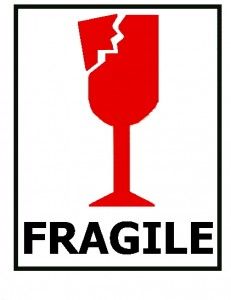Monday

Antifragility
Nassim Taleb is coming out with a new book. It sounds great. Unfortunately, it won't be available for another eight months.
I listened to a podcast about it. Twice . . . but mostly due to circumstance (I was driving in bad weather in the dark and didn't dare take my eyes off the road long enough to find a different podcast, so I just clicked replay). I'm definitely going to buy the book and study it closely when it comes out.
I was particularly struck by the discussion about the limits of our knowledge. Regular readers of TDE know that I have turned into a thorough skeptic, so passages like this one resonate with me:
You said: What do you do when you don't know what's going on? And I would add, which I think comes right out of your book: and most of the time, you don't know what's going on. It's not like it's a special case. I think about it a lot of the time with economic policy, because when I suggest that maybe we should do nothing or if maybe the government should get smaller, we should reduce debt across the board, people say: How can you do that? You've got to have some positive. The reason, say, Hayek, says it doesn't matter--I don't think it's a fair criticism of Hayek, but people say: He didn't want to do anything. And one counter is: You don't know what you are doing. You have no idea what you are doing. You claim you have a scientific basis for it.
A little later they discussed a chart that Taleb presents in the book. It supposedly has a huge circle that represents everything we don't know, then a second micro-slice of the things we do know. The point of the chart is obvious: We don't know hardly anything. And as a corollary: People (especially government planners and the Federal Reserve) should stop acting like they do.
And because we know very little, we are fragile. Very fragile. And so is our economy and so is, gulp, our entire society and culture. We are subject to attacks by black swans. The best we can do is to make ourselves robust, antifragile, which means, among other things, being self-sufficient, holding lots of cash, and cultivating detachment.
The Groggy Revelation
For some reason, I was thinking about these things on Saturday morning, around 4:30, after I had moved from my bed to the couch in a battle against a small hangover.
And something dawned on me: I'm not a skeptic at all. Metaphysically, I believe in all sorts of things. In the arena of natural law, I believe in all sorts of things. When it comes to a priori knowledge, axioms, and unproven premises, I'm a bustle of receptivity. Such things drive my thought, prose and attitude toward life. I am the flipside of Voltaire and Bacon. They were skeptical of all such things, but held great belief in a posteriori knowledge, empiricism, and experimentation (well, at least Bacon believed in such things; Voltaire was probably a thoroughgoing skeptic on all fronts).
Please don't roll your eyes, gentle reader. This is fundamental, yes. In my defense, I was aware of it all along, but only seeing it through a dusky glass. The clarity hit me while looking out my living room window on a dark winter morning, wondering why I needed that beer chaser after drinking the bottle of red.
After more cogitation time, I then realized that my entire attraction to the libertarian tradition rests largely on this distinction: the libertarians (including some anarchists--the early Taoists were anarchists, but revered the Tao) are mundane skeptics, but they believe in natural law. Even Rothbard and von Mises, non-believers both, believed in natural law: rules of human nature and economics that apply, that don't need to be proven, and that are the starting points of fruitful philosophy and public policy.
Two Types?
After the hangover fog lifted, I continued to think about the natural law and skepticism throughout the day. At one point, I even framed this principle:
There are two types of people in the world: Those who believe in metaphysics or natural law but disbelieve in scientific and experimental knowledge, and those who don't believe in natural law and put all their faith in scientific knowledge.
Now, this is absurd for two reasons. First, whenever someone says ingenuously, "There are two types of people in the world . . ." you can be sure that you're listening to a dolt. Second, my principle is obviously invalid. I know people who believe in natural law and Ben Bernanke. I know people who believe in God, but don't accept natural law or science. People litter the spectrum in these matters. And on top of that: most people haven't considered the matter either way and probably hold conflicting attitudes toward each of the poles.
But still, from a public policy standpoint, from an intellectual standpoint, I think the framework is useful. If nothing else, it will tell me who can be read with profit and who can't. If someone falls in the metaphysically-skeptic and empiricism camp, he is one of those people who have driven the world to its current madness, and he need not be read, unless you want to see what the devil is up to. If someone falls into the natural law and empirically-skeptic camp, he's probably someone you can read with great profit.
It's also useful to realize (and hold in front of you) that the metaphysically-skeptic and empiricism camp has controlled public policy since at least the time of Lincoln. If you don't fall in that camp, you're on the outside. But don't despair. I like to think you have good company. You're with Taleb and me. And Cicero and Seneca. And Chesterton and Lewis. And Nock and von Mises. And Saints Augustine, Aquinas, and Paul.
